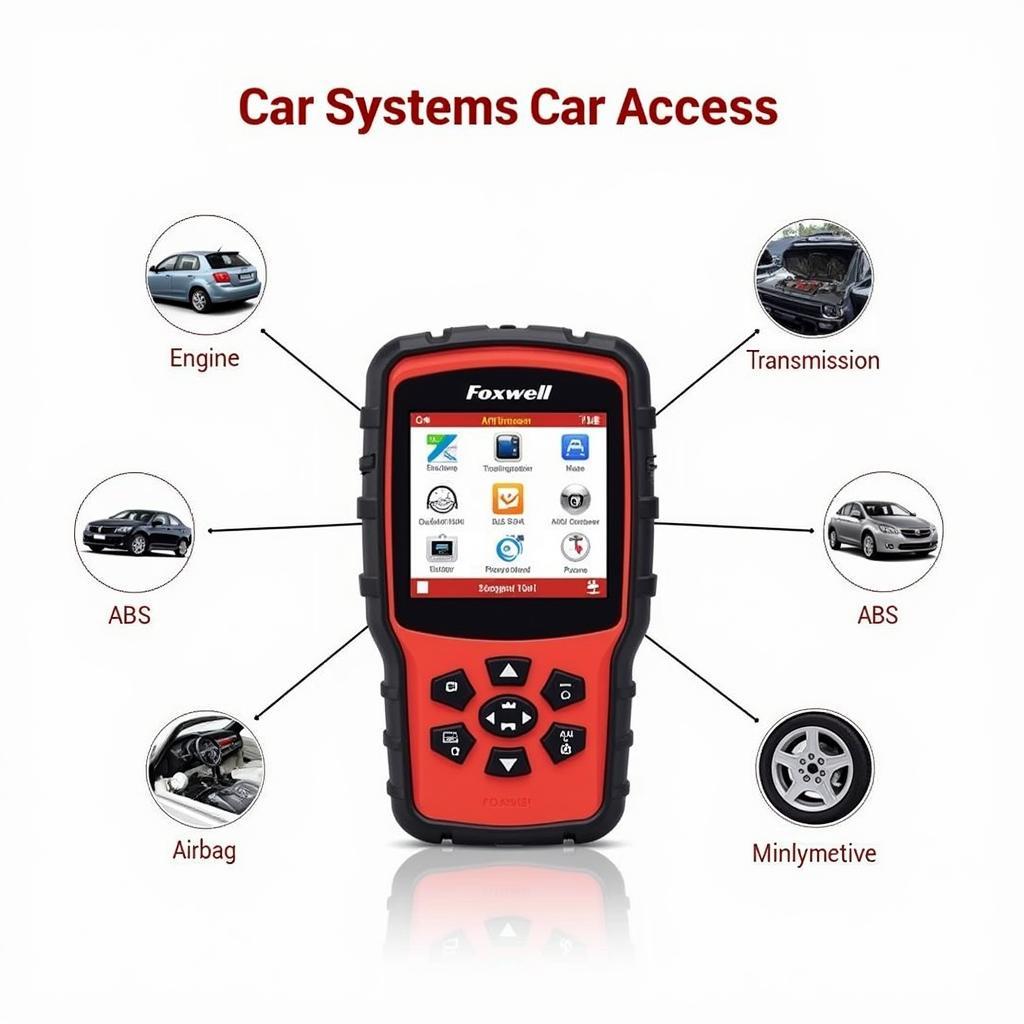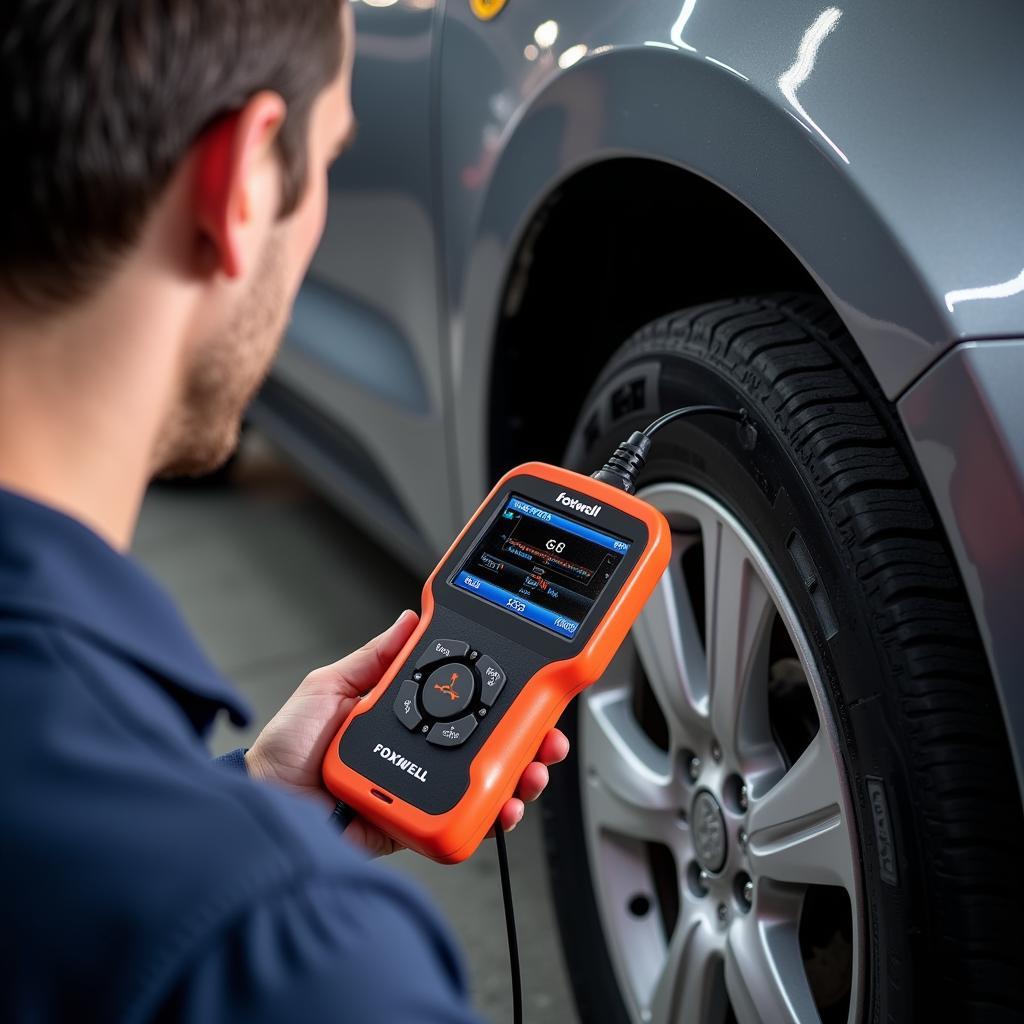Lori Foxwell may not be a name synonymous with automotive diagnostics like some prominent brands, but the search term suggests a user looking for information related to automotive diagnostic tools, software, or perhaps even an individual artist. Understanding this nuance is critical for providing relevant content. This article will delve into the world of automotive diagnostics, exploring the software and hardware used to pinpoint and resolve vehicle issues. We’ll examine common problems, diagnostic techniques, and the crucial role of specialized tools in modern car repair.
Modern vehicles are increasingly complex, relying on intricate networks of sensors, actuators, and electronic control units (ECUs). When something goes wrong, diagnosing the issue requires more than just a wrench and a keen ear. It demands sophisticated diagnostic tools and the knowledge to interpret the data they provide. Whether you’re a seasoned mechanic or a car owner looking to understand your vehicle better, navigating the world of automotive diagnostics can be daunting.
Decoding Diagnostic Trouble Codes (DTCs)
One of the cornerstones of modern automotive diagnostics is the Diagnostic Trouble Code (DTC). These codes, often displayed as a combination of letters and numbers, provide clues about the nature and location of a vehicle malfunction. A DTC like P0302, for example, indicates a misfire in cylinder 2. However, DTCs are rarely a definitive diagnosis; they are more like starting points for further investigation. Understanding how to retrieve and interpret these codes is fundamental to effective troubleshooting. Using a quality diagnostic scanner is crucial for retrieving DTCs.
Selecting the Right Automotive Diagnostic Software
The software used in conjunction with a diagnostic scanner plays a pivotal role in the diagnostic process. Some software offers basic code reading and clearing capabilities, while others provide advanced features like live data streaming, actuator tests, and access to manufacturer-specific information. Choosing the right software depends on your needs and expertise. Factors to consider include vehicle coverage, update frequency, user interface, and available features. Investing in reliable and up-to-date software is essential for accurate and efficient diagnostics.
edinburg va artist doris foxwell print
Common Automotive Diagnostic Tools
Beyond the diagnostic scanner and software, various other tools are essential for comprehensive automotive diagnostics. These include multimeters for measuring voltage, current, and resistance; oscilloscopes for analyzing electrical signals; pressure gauges for testing fuel and vacuum systems; and a wide range of specialized tools for specific makes and models. A well-equipped toolbox is a mechanic’s best friend, enabling them to delve deeper into the inner workings of a vehicle and pinpoint the root cause of problems.
Troubleshooting Common Car Problems with Lori Foxwell as a Keyword
Using “Lori Foxwell” as a keyword, while seemingly unrelated to automotive diagnostics, highlights the importance of understanding user intent. Perhaps the user is seeking information about an artist named Lori Foxwell and their connection to automotive imagery, or they might be looking for an individual with that name who specializes in automotive repair. While we focus on the broader topic of automotive diagnostics, acknowledging this ambiguity reinforces the need for precise and relevant content.
Addressing Specific Vehicle Systems
Different vehicle systems require specific diagnostic approaches. For example, diagnosing an engine misfire involves checking spark plugs, fuel injectors, and compression. Troubleshooting electrical issues requires testing wiring harnesses, sensors, and control modules. Understanding the intricacies of each system is crucial for effective diagnostics.
The Importance of Ongoing Training
The automotive industry is constantly evolving, with new technologies and diagnostic procedures emerging regularly. Staying up-to-date with the latest advancements is essential for any automotive professional. Continuous learning, attending workshops, and engaging with online communities like forums dedicated to diagnostic tools can significantly enhance your diagnostic skills. For example, engaging with a “Foxwell scanner forum” might be a valuable resource for those interested in this specific brand of diagnostic tools.
Future of Automotive Diagnostics
The future of automotive diagnostics is likely to be even more heavily reliant on software and sophisticated tools. With the increasing prevalence of electric vehicles and autonomous driving technologies, the complexity of vehicle systems will only continue to grow.
Conclusion
Effective automotive diagnostics is an essential skill in today’s automotive landscape. From understanding DTCs to utilizing advanced diagnostic software and tools, staying ahead of the curve requires ongoing learning and a dedication to mastering the latest technologies. Whether you are a professional technician or a car enthusiast, embracing the power of diagnostics empowers you to maintain and repair vehicles effectively. Feel free to connect with us at ScanToolUS for further support. Our phone number is +1 (641) 206-8880 and our office is located at 1615 S Laramie Ave, Cicero, IL 60804, USA.
FAQ
-
What does a DTC tell me? A DTC provides a clue about a potential malfunction within your vehicle’s systems.
-
Why is diagnostic software important? It helps interpret the data from the diagnostic scanner and provides deeper insights into vehicle issues.
-
What are some common automotive diagnostic tools? Multimeters, oscilloscopes, and pressure gauges are among the common tools used.
-
How can I stay up-to-date with automotive diagnostics? Continuous learning and engaging with online communities can help.
-
What is the future of automotive diagnostics? It will likely involve even more advanced software and tools, particularly with the rise of electric and autonomous vehicles.
-
What if my scanner doesn’t recognize a specific DTC? Consult the vehicle’s service manual or contact a qualified technician.
-
Why is it important to understand different vehicle systems? Each system has unique diagnostic procedures and understanding them leads to accurate troubleshooting.


